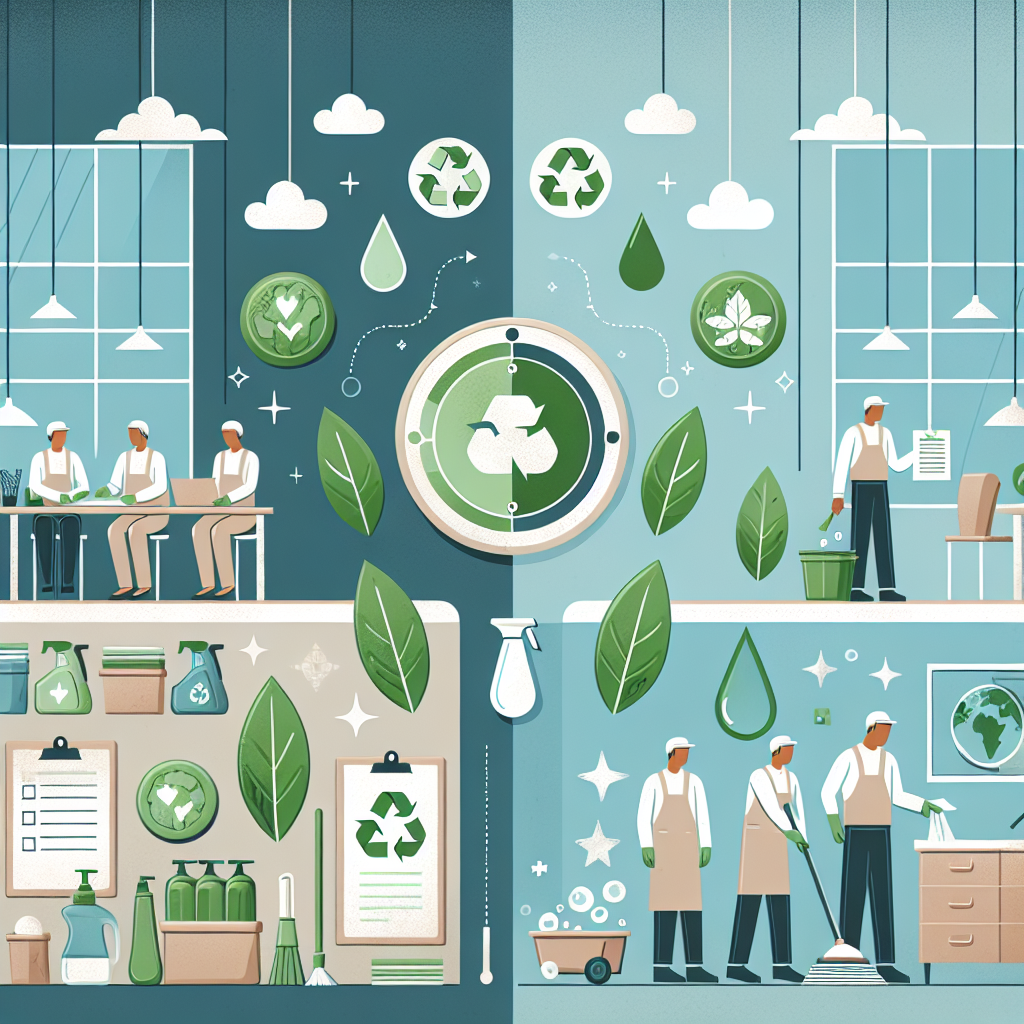Achieving Green Cleaning Compliance in Government Contracting
Green cleaning compliance is an increasingly important focus in government contracting, driven by the need for sustainable and environmentally friendly practices. This approach includes the use of non-toxic, biodegradable products and sustainable methods to minimize negative impacts on health and the environment. Government agencies and contractors alike strive for green cleaning compliance to enhance indoor air quality, reduce chemical waste, and foster healthier workspaces.
The Importance of Green Cleaning in Government Contracts
Implementing green cleaning practices in government buildings is more than just a regulatory requirement; it’s a step towards a more sustainable future. Governments at both state and federal levels are adopting stringent green cleaning standards to:
Enhance Indoor Air Quality
Traditional cleaning products can release harmful volatile organic compounds (VOCs) into the air, significantly affecting air quality. Green cleaning products, which are typically low in VOCs, contribute to cleaner indoor air. This is particularly significant in government buildings, where millions of employees and public visitors are present daily.
Reduce Environmental Impact
Green cleaning products are designed to break down naturally, reducing chemical runoff into water systems and decreasing landfill waste. This is critical for government agencies that operate large facilities and are responsible for substantial waste management.
Promote Employee Health and Safety
By minimizing exposure to hazardous chemicals, green cleaning practices aim to reduce health issues among employees, such as skin irritations, allergies, and respiratory problems. A healthier workforce is not only a moral imperative but also promotes productivity and reduces healthcare costs.
Establishing Green Cleaning Practices
Government contractors aiming for compliance can adopt several strategies to align with green cleaning standards:
Select Certified Green Products
Look for third-party certifications such as Green Seal or EcoLogo, which ensure that products meet rigorous environmental performance standards.
Train Personnel
Proper training for cleaning staff can maximize the effectiveness of green cleaning efforts. Training should cover product use, waste management, and emergency procedures in case of spills or exposure.
Implement Efficient Cleaning Practices
Develop cleaning schedules and procedures that optimize resource use, such as water and electricity, without compromising cleanliness.
Legal and Regulatory Considerations
Contractors must stay informed about relevant regulations that could affect their compliance. At the federal level, the General Services Administration (GSA) and Environmental Protection Agency (EPA) set guidelines for green cleaning. In Maryland, agencies like the Maryland Department of the Environment provide additional state-specific regulations.
GSA Sustainable Facilities Tool
This tool offers guidance and resources for conceiving and maintaining sustainable federal facilities, emphasizing green cleaning compliance.
Maryland Green Purchasing Committee
The Committee offers resources and specifications for state contractors to help them meet Maryland’s green purchasing policies, including those related to cleaning products and services.
Conclusion
Achieving green cleaning compliance is essential for government contractors dedicated to meeting environmental standards and promoting public health. By adopting eco-friendly products, training programs, and efficient practices, contractors can ensure they comply with both federal and state regulations like those in Maryland. As agencies continue to prioritize sustainability, green cleaning compliance will not only remain a regulatory requirement but also a competitive advantage for contractors.
Engaging in these practices also demonstrates a commitment to environmental stewardship, ultimately benefiting both the community and the planet. Stay ahead by continually updating your practices and knowledge in this evolving landscape of government contracting.

